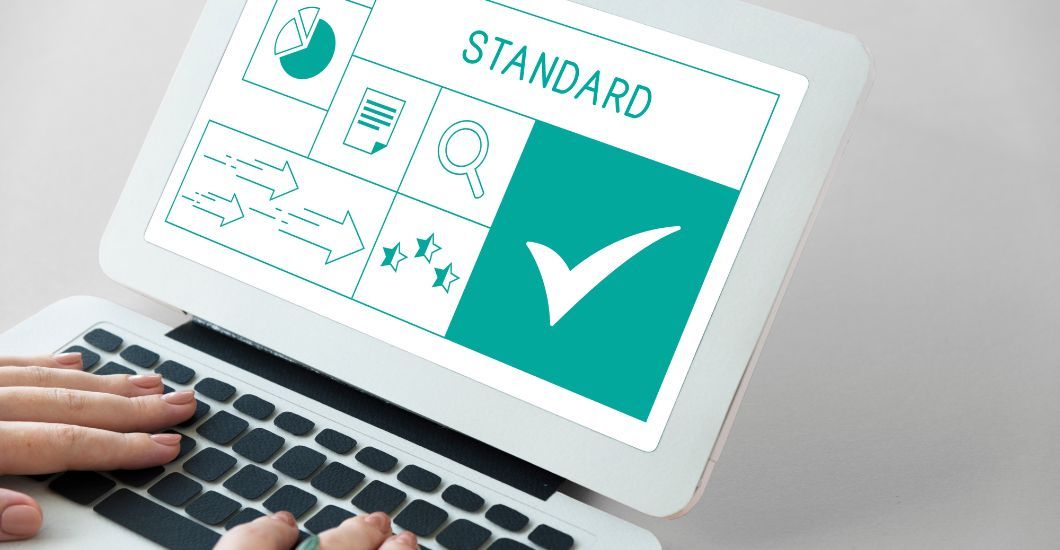10 Tips on How to Increase Productivity in the Workplace
Did you know that workplace productivity is crucial to any company’s success? Workers who are content and healthy are the backbone of any successful business. In addition, organisations benefit from increased productivity because it allows them to use their existing human resources better.
So, if you want to learn more, keep reading this blog since we will cover a lot more ground. Let’s dive deeper into what it means to be productive, why it’s so crucial, and how to increase productivity in the workplace!
![]()
How can we define productivity in the workplace?
The term “productivity” refers to the quantity of work completed by an individual or team in a given period of time. A higher productivity rate allows more work to be done in less time with less effort.
Depending on your goals, evaluate success based on how many tasks were completed, how much product was made, or the overall quality of the work.
Greater profitability, reduced overhead, and enhanced competitiveness result from increased productivity, which occurs when a worker or business produces more outputs using the same amount of inputs or fewer inputs.
The ability to manage one’s time, tasks, and goals more successfully is what productivity is all about.
How can we measure productivity in the workplace?
Industrial goals are typically the key to understanding how to gauge productivity in the workplace. It is impossible to improve without knowing how you compare to the standard.
The method chosen for measuring productivity should be informed by company goals and the industry in which the company operates.
Depending on the scope of your business, you may need to adjust your strategy, but ultimately, you should be able to achieve your goal by helping your staff members set personal goals that align with the company’s goals.
One or more of the following approaches may work for your company:
- Time management;
- Peer evaluation and feedback;
- Customer satisfaction;
- Follow-up on worker development;
- Completing tasks on time.
10 tips on how to increase productivity in the workplace
Gaining and maintaining high levels of productivity in the workplace is crucial in any industry. Companies can better use their available resources through increased productivity among their staff. And businesses that prioritise
The following are 10 tips for improving productivity in the workplace:
1. Make a healthy workplace a priority
Maintaining employee health, happiness, and productivity is of the utmost importance in any workplace. If workers feel valued and secure in their workplace, they can better concentrate on their duties and give their all to the company.
To enhance employee wellness, integrating spa management software can provide employees with a convenient way to book relaxation sessions, boosting their well-being and overall productivity.
Workers who feel valued are more invested in their work and more likely to go above and beyond.
Improvements in physical comfort, encouragement of mental wellness, emphasis on safety, promotion of open communication, and opportunities for professional growth are just a few of the many ways businesses can foster a positive workplace.
2. Avoid unnecessary meetings
Meetings that aren’t essential can be quite draining on the time and energy of the people who have to attend them, which can lead to a drop in productivity and a rise in stress levels.
Companies can foster a more positive work culture and improve productivity by cutting down on unnecessary meetings and making the most of the ones that do occur.
Setting clear objectives, inviting only relevant participants, and encouraging attentive participation are all ways to cut down on time spent in meetings that aren’t productive.
3. Regularly provide feedback
Employees who receive consistent feedback are more likely to know how they are doing, where they may improve, and why their efforts are appreciated.
Everyone wants to feel like they are making a difference at work and contributing to the business’s success.
A regular feedback loop on employee performance and potential areas for increased output would be greatly appreciated. It’s important to stress that this type of feedback is only valid when it’s delivered in an objective manner.
4. Make fostering teamwork a priority
Being on a well-functioning team at work can significantly impact efficiency. Workers who don’t get along won’t be as dedicated to the company as those who do.
Arrange some outside or virtual team building activities, like an escape room or a sports day. Employee motivation, satisfaction, and output can all be increased by creating a cooperative work environment where everyone feels like they belong.
Similarly, it’s essential to recognise and honour the team’s accomplishments, both big and small, to foster a stronger sense of shared purpose and boost morale.
5. Promote education and training
Promoting employee learning and development is a worthwhile tactic for boosting output in the workplace. Investing in an employee’s education and training can do wonders for their motivation and self-assurance.
Companies may help employees perform at their best and be better prepared to address the demands of a fast-changing work environment by allowing them to learn new skills and stay up to date with industry advances.
There are many options for imparting knowledge or skills to your staff. You may send them to conferences, provide them with free or discounted training, or introduce them to AI tools for productivity that can streamline their workflows and enhance their capabilities.

6. Recognise the efforts of employees
Employee motivation, morale, and job satisfaction can be raised by recognising their efforts and enhancing productivity. Additionally, it fosters an environment at work where people are valued and respected. Fine Awards offer a great way to honour employees' achievements with high-quality, customizable recognition awards.
Digital signage can further amplify this recognition by showcasing achievements across the workplace in real time. Ready-made digital signage templates keep the process efficient and the visuals strong.
Your staff will be better able to focus and produce better jobs if they feel at ease at their workstations or other designated work areas. A strong culture of open communication and aiding one another will ensure that collaborative tasks go smoothly.
7. Avoid micromanaging
In the workplace, workers need guidance and the freedom to think independently. Encourage them to develop as individuals while contributing to the company’s success.
Avoid micromanaging at all costs by letting staff members determine their methods of getting work done. Focus on the result instead of micromanaging every project detail, and allow your staff to figure out how to get there.
And before drawing any firm judgments about their motives, it’s always best to have a conversation with them about their blunders. Employees will learn from their mistakes and strive to avoid them in the future if you do this.
Check out our article to find out how to manage a global team successfully.
8. Offer rewards
Employees may be more motivated and satisfied with their work if they are rewarded for their efforts.
Give employees the appreciation they deserve by highlighting their accomplishments in company comprehensive communications like emails, newsletters, and meetings.
A reward could be a day off, a gift certificate to a favourite restaurant, or even a monetary bonus. To add to its usefulness in this regard, it contributes to developing an encouraging work environment in which employees feel respected and appreciated.
9. Hold regular meetings for goal-setting and evaluation
Setting and reviewing goals on a consistent basis is one of the most important things you can do to increase productivity on the job. Gather your team together, and talk about your objectives to ensure everyone is working towards the same things.
One-on-one meetings with employees allow you to share your vision for the company’s future and evaluate the team’s progress toward that vision.
Both upper management and employees can make course adjustments using this information. Don’t forget about following up on issues after the meeting has ended.
10. Set realistic objectives
Challenging your hardworking staff to the best of their abilities is acceptable, but it’s also important not to overdo it. Make sure everyone knows exactly what you need to accomplish when you hand them assignments.
For employees to be productive, their jobs must be within their capabilities, and the time allotted to complete them must be sufficient. Exhausting people with an impossible workload and deadlines is a way to sap their motivation.
Help your staff succeed by giving them attainable personal goals and objectives. This will help them become more efficient, knowledgeable, and influential in their position within the firm.
The importance of employee productivity
A company’s productivity directly correlates to its level of success. Unproductive workers can have a devastating effect on a company’s bottom line and could even spell its doom.
Businesses need to understand the various aspects affecting employee productivity to foster an atmosphere that encourages output. Increased profitability and expansion result from productive workers who use their time and resources more effectively.
Having a highly effective workforce also aids in maintaining competitiveness, attracting top talent, and keeping current employees happy.
Boosting productivity can have a multiplicative effect on the workplace, resulting in happier workers who take more pride in their work and a more positive attitude.

What can hinder employee productivity?
Company performance relies heavily on employee output, which a wide variety of issues can negatively impact. Naturally, management has a significant impact on employees’ initiative and morale.
Lack of motivation and engagement, ineffective management and leadership, insufficient resources, workplace distractions, burnout, inadequate training, and a lack of work-life balance are all typical challenges.
In order to boost employee productivity and accomplish organisational objectives, businesses must address these obstacles.
The following are some common but easily avoidable blunders to avoid when assembling a competent management team:
- Ineffective leadership and management;
- The inability to strike a balance between work and personal life;
- Expecting people to work more without taking into account their concerns and needs;
- Misunderstanding the importance of employees’ intrinsic motivation;
- Not participating in the tasks that employees do.
Wrapping things up
How to maximise productivity in the office is a topic that can (and has) spawned entire books. However, businesses will need to continuously try new methods for enhancing productivity and gauging results because the way work is actually done is also evolving rapidly.
While the approaches mentioned above can be practical, it’s also crucial to be adaptable; different businesses will naturally follow different rules. Recognise that each person is unique and adapt your methods accordingly to maximise productivity.
